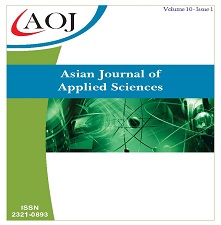The Development of Audio-Visual Learning Media in Islamic Cultural History Subject for Eight Grade Students of MT’s Al-Amanah, Jeneponto
DOI:
https://doi.org/10.24203/ajas.v10i1.6844Keywords:
Learning, Media, Audio VisualAbstract
The problem in this research were: what is the level of learning implementation and learning achievement of History and Culture of the VIII grade students of MTs Al-Amanah in Jeneponto Regency? The purpose of this study is to describe: An overview of the implementation of learning and learning achievement levels History of Islamic culture in class VIII students of MTs Al-Amanah in Jeneponto Regency. This research was development research (R&D). Development research was research which was oriented towards the development or refinement of a science in overcame a problem directly through an action and self-reflection based on the results of the research, which aimed to improve or enhance educational services that must be carried out in the context of classroom learning. Based on the research results that have been described in the previous chapter, the research results were formulated as follows: Achievement of learning Islamic History and Culture using audio-visual media Students of class VIII MTs Al-Amanah in Jeneponto Regency has a significant increase. Of the 38 students at Madrasa Tsanawiyah Al-Amanah Jeneponto Regency, 20 people got the high category and 13 people got the high enough category after taking action using audio-visual media. Different things before being given the action of using audio-visual media in Islamization learning material activities in South Sulawesi.
References
S. Yuliandari, “PENGEMBANGAN MEDIA PEMBELAJARAN BERBASIS MULTIMEDIA INTERAKTIF PADA MATA PELAJARAN EKONOMI MATERI JURNAL PENYESUAIAN PERUSAHAAN JASA,” Jurnal Pendidikan Akuntansi (JPAK), vol. 2, no. 2, Art. no. 2, Aug. 2014, Accessed: Feb. 15, 2021. [Online]. Available: https://jurnalmahasiswa.unesa.ac.id/index.php/jpak/article/view/9418.
Rusman, D. Kurniawan, and C. Riyana, Pembelajaran berbasis teknologi informasi dan komunikasi : mengembangkan profesionalitas guru, 1st Ed. Jakarta: Rajawali Pers, 2012.
C. L. Bovee, Business Communication Today. New York: Prentice Hall, 1997.
O. Hamalik, Proses Belajar Mengajar. Jakarta: Bumi Aksara, 2004.
Departemen Pendidikan Nasional, “DEPARTEMEN PENDIDIKAN NASIONAL PENGEMBANGAN SILABUS - PDF Free Download,” 2008. https://docplayer.info/52909482-Departemen-pendidikan-nasional-pengembangan-silabus.html (accessed Feb. 15, 2021).
J. Abdullah, “Pengertian Sejarah dan Pendidikan Islam - Kompasiana.com,” Kompasiana, Jun. 27, 2015.
M. K. Supiana, Materi pendidikan agama Islam. Bandung: Remaja Rosdakarya, 2001.
N. A. Ghaffar, “Tasawuf dan Penyebaran Islam di Indonesia,” Rihlah: Jurnal Sejarah dan Kebudayaan, vol. 3, no. 01, Art. no. 01, Oct. 2015, doi: 10.24252/rihlah.v3i01.1374.
R. Rahmawati, “Perspektif Baru dalam Proses Penyebaran Islam di Kerajaan Bone Sulawesi Selatan Indonesia pada Abad ke 17,” Rihlah: Jurnal Sejarah dan Kebudayaan, vol. 3, no. 01, Art. no. 01, Oct. 2015, doi: 10.24252/rihlah.v3i01.1375.
H. Suh, “International Journal for Educational Media and Technology,” International Journal for Educational Media and Technology, vol. 5, no. 1, p. 12, 2011.
N. S. Hanum, “Keefetifan e-learning sebagai media pembelajaran (studi evaluasi model pembelajaran e-learning SMK Telkom Sandhy Putra Purwokerto),” Jurnal Pendidikan Vokasi, vol. 3, no. 1, Art. no. 1, Feb. 2013, doi: 10.21831/jpv.v3i1.1584.
N. Khodijah, “EVALUASI PROGRAM PENINGKATAN KULAIFIKASI GURU MADRASAH DI SUMATERA SELATAN,” Jurnal Penelitian dan Evaluasi Pendidikan, vol. 16, no. 1, Art. no. 1, 2012, doi: 10.21831/pep.v16i1.1121.
Yamin, Strategi pembelajaran berbasis kompetensi. Jakarta: GP Press, 2007.
T. Achmad, Strategi Belajar Mengajar Bahasa dan Sastra Indonesia. Makassar: Badan Penerbit UNM, 2005.
Slameto, Belajar dan faktor-faktor yang mempengaruhinya. Jakarta: Rineka Cipta, 2003.
R. E. Clark, “Dangers in the evaluation of instructional media,” Academic Medicine, vol. 67, no. 12, pp. 819–20, Dec. 1992.
P. Fathurrohman and S. Sutikno, Strategi Belajar Mengajar. Bandung: Refika Aditama, 2011.
Kunandar, Langkah Mudah Penelitian Tindakan Kelas. Jakarta: Rajawali Pers, 2009.
S. Thiagarajan, D. S. Semmel, and M. I. Semmel, Instructional Development for Training Teachers of Exceptional Children. University of Minnesota: Leadership training institute/special education, 1974.
H. D. Brown, Principles of Language Learning and Teaching. USA: Longman, 2007.
J. Piaget, Piaget’s Theory, In P.H. Mussen (ed). Carmichael’s Manual of Psychology. New York: Wiley, 1970.
W. Sanjaya, Strategi Pembelajaran Berorientasi Standar Proses Pendidikan. Jakarta: Kencana, 2014.
Downloads
Published
Issue
Section
License
Copyright (c) 2022 Ihdiana, Ismail Tolla, Jumadi

This work is licensed under a Creative Commons Attribution-NonCommercial 4.0 International License.
Copyright © The Author(s). This article is published under the Creative Commons Attribution License (CC BY 4.0), which permits unrestricted use, distribution, and reproduction in any medium, provided the original work is properly cited.


